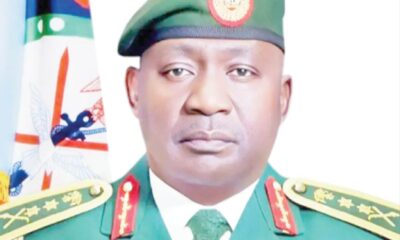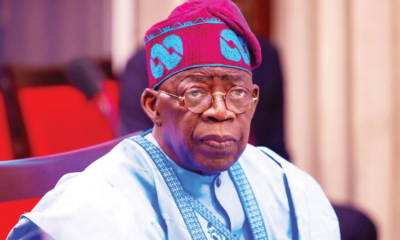Analysis
Dangote vs PENGASSAN: When Labour Rights Collide with National Dreams
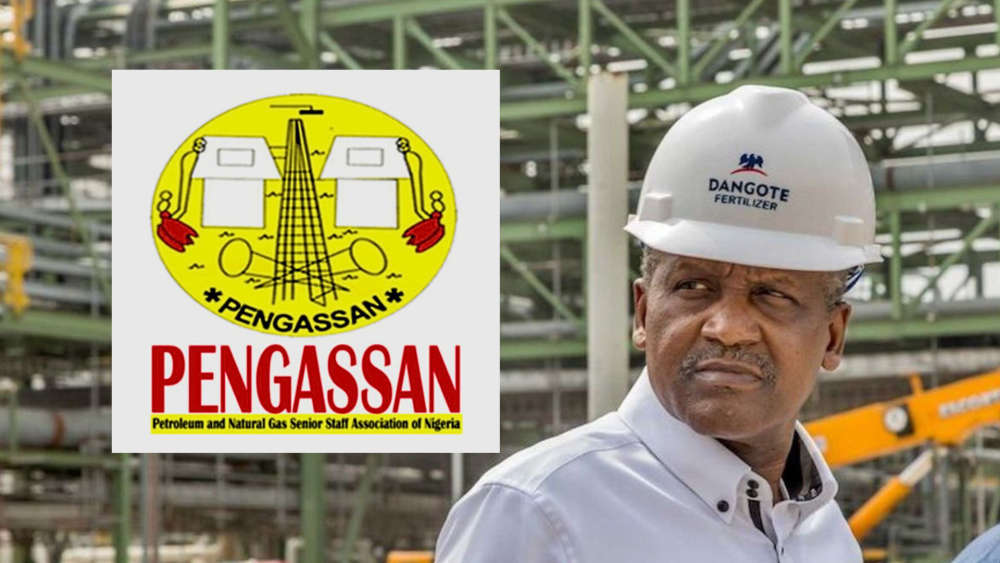
Dangote vs PENGASSAN: When Labour Rights Collide with National Dreams
By Alabidun Shuaib AbdulRahman
The simmering conflict between the Petroleum and Natural Gas Senior Staff Association of Nigeria (PENGASSAN) and the Dangote Refinery is not just another workplace quarrel. It is a test case for how Nigeria intends to balance labour rights with its desperate need for industrial transformation. The refinery, a 650,000 barrels-per-day behemoth hailed as Africa’s largest, is meant to save Nigeria from the chokehold of fuel importation. But now, just as its promise begins to unfold, it is caught in the turbulence of labour agitation.
At the core of the dispute is PENGASSAN’s demand for recognition and collective bargaining rights for its members within the refinery. Reports suggest that Dangote Industries Limited has been reluctant to fully embrace union representation, raising questions about compliance with Nigeria’s labour laws and international conventions that guarantee workers the freedom of association. For PENGASSAN, which has long stood as a formidable force in Nigeria’s oil and gas sector, this is not simply about one employer. It is about setting a precedent in a sector that could define Nigeria’s industrial future.
Although globally, these issues are common in large refinery operations. India’s Paradip Refinery experienced a massive strike in 2021 involving over 10,000 workers demanding better conditions. Brazil’s Petrobras has repeatedly faced union pushback, including a 2015 strike that cut production by 20 percent. In South Africa, chemical and refinery workers have staged strikes that paralysed supply until wage agreements were reached. The lesson is clear: mega refineries and mega unions often collide, and resolution depends on structured dialogue rather than confrontation.
Nigeria’s own history mirrors this global trend. Chevron, Shell, and other multinationals have clashed with PENGASSAN and NUPENG over welfare, pensions, and layoffs. In many cases, government intervention has served as the dealbreaker, with the Ministry of Labour stepping in to mediate. The Dangote Refinery dispute, however, is unique because of its dual nature — a privately owned enterprise with public ownership through NNPCL’s 20 percent stake. This means that the Nigerian state cannot sit idle while the project wobbles under labour unrest.
The facts speak loudly. According to the National Bureau of Statistics, industrial disputes cost Nigeria over N1.3 trillion between 2016 and 2021, with oil and gas taking the lion’s share. Global data from the International Trade Union Confederation further show that countries with robust collective bargaining systems — like Sweden and Denmark — record fewer strike days and higher productivity. Nigeria, with its fragile economy, can ill-afford prolonged shutdowns at the refinery that has been billed as the silver bullet for its foreign exchange crisis.
The International Labour Organization (ILO) conventions 87 and 98, both ratified by Nigeria, enshrine workers’ rights to organise and bargain collectively. If Dangote Industries ignores these obligations, it risks international criticism, reputational damage, and domestic instability. Yet, PENGASSAN also has a responsibility to frame its demands within the context of national economic realities. Striking a balance between workers’ rights and the refinery’s survival is the only path forward.
This is where lessons from global practice become crucial. In Germany, labour disputes in refineries are addressed through codetermination, where unions sit on company boards, ensuring dialogue before crisis. In Brazil and India, strikes often end with phased agreements that allow employers time to adjust while workers secure incremental gains. Nigeria must look in this direction, creating a structured negotiation platform that protects workers without crippling the refinery.
For Dangote, recognising PENGASSAN is not capitulation; it is an investment in industrial peace. For PENGASSAN, pressing its case should not come across as a political siege but as a constructive effort to align the refinery with global best practices. And for government, silence is not an option. With NNPCL as a shareholder, Abuja must assume its statutory role in preventing a strike that could cripple the very project marketed as Nigeria’s energy salvation.
The bigger picture cannot be ignored. The refinery was sold to Nigerians as a symbol of hope, a project that would slash fuel import bills, stabilise forex, and create jobs. But if its foundation is marred by labour unrest, it risks becoming another symbol of Nigeria’s chronic inability to balance growth with fairness. The refinery must not be allowed to mirror the failures of Ajaokuta Steel, where poor labour and policy management condemned a massive project to decades of waste.
The PENGASSAN–Dangote imbroglio is therefore not just about wages or recognition. It is about whether Nigeria can truly run world-class industrial projects without sacrificing the dignity of its workers. It is about whether labour rights and national dreams can co-exist. The choice before both sides is stark: confrontation that could stall progress, or dialogue that could set a benchmark for labour relations in Africa’s largest refinery.
History offers a blunt truth: great refineries around the world have all faced labour disputes. What distinguishes successful ones is not the absence of conflict but the maturity of resolution. Nigeria has a chance to show such maturity now. If PENGASSAN and Dangote sit across the table and forge an agreement, they will not only save a refinery but also script a new chapter in Nigeria’s industrial history. If they do not, the dream of energy independence could collapse under the weight of industrial disharmony.
In the end, the refinery must not only refine crude oil; it must also refine Nigeria’s labour practices. That is the true test of national transformation.
Analysis
Perennial Coups in Africa, by Boniface Ihiasota
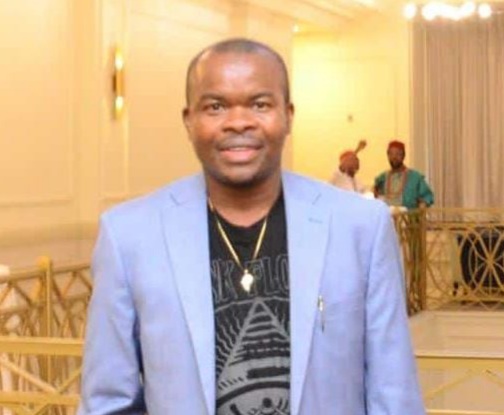
Perennial Coups in Africa, by Boniface Ihiasota
Africa’s post-independence path has often been marred by abrupt disruptions of democratic order, with coups becoming a recurrent and, tragically, almost predictable phenomenon. The recent events in Benin reaffirm that this spectre remains alive. On 7 December 2025, a group of soldiers appeared on state television declaring they had seized power, dissolved national institutions, suspended the constitution, and closed the country’s borders. Yet the attempt was thwarted when loyalist forces regained control, with the government’s Interior Minister confirming the coup had been foiled.
This near-coup in Benin is not an isolated incident; rather, it is a vivid illustration of a broader pattern that has haunted the continent for decades. Since the 1950s, the tally of coups, both successful and attempted, in Africa outstrips any other region globally. By some estimates, between 1950 and 2023, Africa registered around 220 coup attempts, of which 109 succeeded and 111 failed. At least 45 of the 54 countries on the continent have experienced at least one coup attempt in their postcolonial history.
The persistence of coups in Africa can be traced to deep structural challenges. Weak institutions, fragile rule of law, endemic corruption, economic hardship, and porous civil-military relations often create fertile ground for military interventions. Researchers have consistently noted the imbalance between civilian governance structures and powerful militaries as a recurring factor in the continent’s political instability.
West Africa, in particular, has borne the brunt of this cycle. Between 2020 and 2023 alone, there were nine coups or attempted coups across West and Central Africa, with nations such as Niger, Mali, Burkina Faso, Chad, and Guinea experiencing partial or complete military takeovers.
The attempted coup in Benin stands out because, for many years, the country had been regarded as one of West Africa’s more stable democracies. Since the return to democratic rule in 1991 after nearly two decades of military dictatorship, Benin has regularly held presidential elections every five years. The 2025 attempt, therefore, is both a shock and a wake-up call.
The details surrounding the recent Benin plot are unsettling. According to the state prosecutor in a prior 2024 case, a coup attempt allegedly involved bags containing 1.5 billion CFA francs, approximately 2.5 million U.S. dollars, intended as funds to bribe or mobilize the presidential guard. Those implicated included a former sports minister and a businessman linked to high-level politics.
While not identical to the 2025 mutiny, the previous case indicates deeper undercurrents of elite intrigue and corruption that may feed motivations for a coup. The immediate impact of the failed 2025 attempt will likely be an internal reckoning: increased insecurity, possible crackdowns, and a climate of suspicion, all of which tend to frighten away investors and diminish public trust. But the consequences extend beyond the immediate. Every interruption in democratic order chips away at long-term institution-building and erodes the social contract between state and citizen.
From the diaspora, the frustration is palpable. We watch as our homelands oscillate between hope and despair, innovation and interruption. Our remittances, investments, and prayers for progress are tethered to the fate of countries like Benin. When a fragile democracy nearly falls, it shakes our belief in a stable Africa whose promise we carry with us across oceans and continents. However, beyond despair lies reflection, and perhaps even resolve.
The coup attempt in Benin should serve as a warning that stability cannot be taken for granted and that democracy is not guaranteed but must be actively nurtured and protected.
For Africa to break free from this cyclical fate of coups, governance structures must be strengthened to ensure a robust judiciary, independent electoral bodies, transparent civilian oversight of the military, and accountable intelligence services. Civic education must cultivate vigilant citizens who demand accountability and refuse to normalize unconstitutional transfers of power.
Regional and international solidarity is equally important, supporting democracy through the promotion of governance, human rights, and long-term stability rather than the expediency of short-term interests.
The failed coup in Benin is a moment of reckoning, not only for Benin but for the continent as a whole. Coups may disrupt governments, but they cannot and should not disrupt the enduring spirit of Africa. The long arc of African progress, encompassing democracy, development, and dignity, demands more than periodic elections; it requires strong institutions, integrity, and a citizenry committed to holding power accountable.
The shadow of coups has loomed over Africa for decades, but it is neither immutable nor inevitable. Breaking this cycle demands collective responsibility, unity, and the prioritization of national interest over personal ambition. Only through these sustained efforts can Africa replace the recurrent threat of military takeovers with a horizon of lasting democracy and development, ensuring that the promise of the continent is no longer postponed but fulfilled for generations to come.
Analysis
Beyond A Defence Minister, by Alabidun Shuaib AbdulRahman
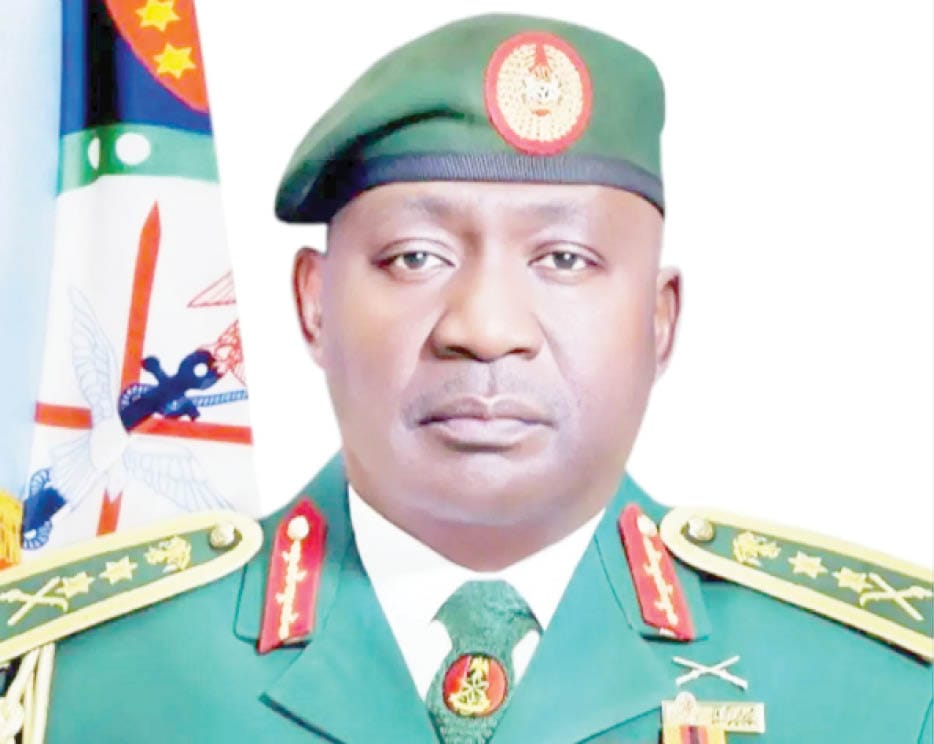
Beyond A Defence Minister, by Alabidun Shuaib AbdulRahman
When the name of General Christopher Gwabin Musa (rtd) was announced as the new Minister of Defence for Nigeria, many citizens did not cheer — they exhaled. In a country where hope often flickers faster than security, each new appointment carries the burden of history. Nigerians are tired of seeing ministers swap titles, while insecurity deepens, kidnappings proliferate, and communities collapse.
To understand the challenge he inherits, one must revisit the history of Nigeria’s Defence Ministry from 1999 onward. The first in the Fourth Republic was retired Lieutenant-General Theophilus Yakubu Danjuma, who assumed office in June 1999 after democracy was restored. Danjuma’s appointment was meant to restore honour and discipline to a military tainted by years of dictatorship. His immediate task was political: reassure Nigerians that the Armed Forces would no longer be politics by another name, and help transition from military rule to civilian governance. He helped steer budgets toward rebuilding and re-equipping, initiating what was then a credible attempt at professionalising Nigeria’s armed forces. But those efforts addressed conventional defence, not the emerging internal threats. Danjuma’s tenure ended in May 2003 with the civilianization of leadership but by then the foundations for internal security challenge management remained shallow.
In July 2003, Rabiu Musa Kwankwaso became Defence Minister under President Obasanjo’s second term, and thus inaugurated an era of civilian political stewardship at the Ministry of Defence. His time, stretching to May 2007, coincided with the earliest stirrings of what would become insurgency. Boko Haram was still marginal, largely ignored by national security architecture focused on external defence. Kwankwaso’s strengths lay in politics and governance, but not in shaping a doctrinal shift toward internal security or insurgency response. The defence ministry under him remained oriented toward traditional armed-forces metrics of equipment, formal deployments, diplomacy while Nigeria lurched toward a reality that required intelligence-driven, community-rooted internal security frameworks.
When Mahmud Yayale Ahmed took over in July 2007 and served until September 2008, the writing was already on the wall. Boko Haram had begun to emerge visibly, yet the response remained bureaucratic. Yayale Ahmed brought civil-service credentials and an administrative mindset, not military temperament. The ministry managed procurement, sustained the flagging morale of the forces after years of underfunding, but did little to evolve institutional capacity for asymmetric threats.
By late 2008 and early 2009, under Shettima Mustapha and subsequently the retired Major-General Godwin Abbe, Nigeria entered what would become its darkest chapter of internal insecurity. In 2009, Boko Haram erupted violently. Abbe, a former soldier turned politician, presided during the crescendo of that crisis. The response was drastic but superficial: raids, crackdowns, mass arrests, but little reckoning with root causes. Communities were ravaged, trust was eroded, animosity deepened between the security forces and civilians. The violence may have been met with force, yet the underlying grievances, intelligence failures and governance vacuums were never addressed. The result was predictable: suppression bred resentment, insurgency morphed and scattered, later to resurge with renewed vigour.
When the baton passed to civilian ministers Adetokunbo Kayode (2010–2011), Haliru Mohammed Bello (2011–2012), and Olusola Obada (2012–2013), Nigeria sank deeper into chronic internal instability. Their tenures focused largely on procurement, revitalizing weapon stocks and administrative reshuffles, rather than systemic overhaul. There were no comprehensive reforms of policing, no robust intelligence-sharing across agencies, no serious investment in community-based early-warning or conflict-prevention mechanisms. Some may have tried to manage manpower, restructure departments or buy equipment, but the enemy had changed: asymmetric war, civilian-targeted violence, kidnapping rings, banditry, communal conflicts. The Ministry remained geared for conventional threats. As a result, Nigeria drifted.
A temporary caretaker period under Labaran Maku (2013–2014) barely registered any shift. Then came a moment of cautious optimism. Aliyu Mohammed Gusau, whose career spanned multiple security and intelligence roles, was appointed Defence Minister in March 2014. His background and reputation suggested a possible turning point: here was a man who understood threats beyond the battlefield. He attempted, in the brief span he held office, to emphasise intelligence coordination, inter-agency cooperation, and reform of structural leakages. But insurgency had already scaled across regions; Boko Haram had splintered, and the patience and capacity were thin. Gusau’s efforts lacked political depth and time. When his tenure ended in May 2015, so too did the hopes of seeing a decisive shift from reactive force to preventive security architecture.
Under subsequent ministers Mansur Mohammed Dan-Ali (2015–2019) and retired Major-General Bashir Salihi Magashi (2019–2023), the tendency again was toward kinetics, procurement, routine operations — heavy-handed responses to terror strikes, bandit raids, kidnappings. The Armed Forces regained some currency; there were operations, there were “victories,” and sometimes media reports of dislodged cells or rescued hostages. But the casualty was strategic consistency. The underlying problems: weak policing institutions, uncoordinated intelligence between state and federal agencies, porous borders, and a civilian security vacuum. Without credible law enforcement reforms, social rehabilitation and community engagement, cleared zones relapsed. Violence remained endemic.
When President Bola Ahmed Tinubu picked Mohammed Badaru Abubakar, a former two-term governor as Defence Minister in August 2023, many hoped that his executive political experience would at last shapeshift national security policy. But reality proved more unforgiving than expectation. By November 2025, Nigeria had witnessed mass kidnappings, schoolchildren abducted en masse, rural communities under siege, and public confidence crumbling. On November 26, President Tinubu declared a nationwide security emergency, ordering mass recruitment into police and army ranks and authorizing new deployments of forest guards to flush out terrorists and bandits from remote hideouts. The aim was to inject manpower; but as many analysts warned, manpower without structural reform is like pouring water into a leaking pot. On December 1, 2025, Badaru resigned reportedly on health grounds.
The very next day, on December 2, President Tinubu nominated retired General Christopher Gwabin Musa as Minister of Defence. Musa had served as Chief of Defence Staff from 2023 until October 2025, when he was relieved in a wide-ranging military shake-up. His record is impeccable: commissioned as Second Lieutenant in 1991 after graduating from the Nigerian Defence Academy, Musa rose steadily through command ranks, served in key operational theatres, including as Theatre Commander in counter-insurgency campaigns and won the Colin Powell Award for Soldiering in 2012.
This appointment represents more than a change of guard; it presents a crossroads. For generations, Nigeria’s Defence Ministry oscillated between procurement-focused bureaucracy and reactive operations. The missing link was always a coherent, nationwide internal security doctrine, one that recognises terrorism, banditry, kidnapping, communal wars and urban criminality as equal or greater threats than cross-border war. Musa may be the man with the credentials; but credentials do not automatically translate to success. For that, he will need more than a uniform, he will need vision, political courage, and structural reengineering.
First, intelligence in Nigeria has long been a patchwork of agencies: military intelligence, police Special Branch, state-level vigilante networks, local community informants, and often unofficial actors. Every Defence Minister since 1999 has inherited this fragmentation. Even when ministers like Aliyu Gusau explicitly prioritized intelligence reform, they lacked either the time, political backing, or institutional leverage to bind these threads into a functional national network. Under Musa, Nigeria must build a real Intelligence Fusion Centre, statutory in law, resourced, and empowered to gather, analyse, and share data across all security agencies. It should not be another office with flowery titles; it must be the beating heart of Nigeria’s security architecture.
Second, Nigeria’s policing and internal security apparatus remain dangerously under-developed. The police are overstretched or mis-deployed; conventional policing capacities are weak; law enforcement is uneven across states or non-existent in many rural areas. In effect, the military ends up policing civilians, a recipe for human rights violations, community alienation, and cycles of violence. Musa must use his credibility both as military man and now Defence Minister to push for statutory police reform, to support state-level policing initiatives, and to redefine roles: the military defends the country externally and responds to exceptional internal crises; the police and civil security agencies maintain daily law enforcement and community protection. That might require political negotiation with governors and lawmakers.
Third, Nigeria must stop treating security as a matter of fire-power and weapons. As urban kidnappings show, and as rural banditry and communal conflicts prove, contemporary insecurity thrives on mobility, networks, subversion, infiltration, and terror. The new minister should prioritise modern security tools: drones for surveillance, communication-intercept (COMINT and SIGINT) capacity, special forces trained in counter-terror, local informant networks, rapid reaction units — small, mobile, intelligence-driven. Big tank brigades and conventional formations have their place; but they are blunt instruments in a country where threats can strike schools at night and vanish into forests by dawn.
Even military brilliance alone will fail if it remains disconnected from society. Nigeria’s security problems are deeply structural: poverty, social dislocation, youth unemployment, weak institutions, poor governance, inter-communal crises, land conflicts, ethnic and religious fractures. Every military advance that does not come with social stabilization — resettlement of displaced persons, rebuilding of schools, reviving of farms and markets, psychosocial support, community reconciliation — simply displaces the problem. The new Defence Minister must insist that security operations be paired with civil-affairs initiatives: resettlement, restoration, rebuilding.
Finally, the Ministry must embrace transparency and result-oriented reporting. For too long, Nigerians have depended on headlines: “Bandits killed,” “Scores of terrorists neutralised,” “Villages liberated.” But those headlines rarely translate into lasting security. The public needs measurable outcomes: fewer kidnappings, fewer mass attacks, safer roads, resettled communities, functioning markets, schools reopened, return of displaced people.
General Musa steps into office at a critical moment: the presidency has just declared a nationwide security emergency; recruitment into police and army forces has been ordered; forest guards are to be deployed, and VIP-protection officers are to be redeployed to frontier duties. These are signals that the government finally acknowledges the scale of the crisis, but manpower without structure is no answer.
If Musa gets it right, this appointment could mark the beginning of a long overdue transformation. If he fails, the nation risks descending deeper into despair: more missing schoolchildren, more displaced families, more ghost towns.
Nigeria does not need another Defence Minister. What Nigeria needs is a Defence Minister who is also an architect of a new national security system: one that integrates intelligence, law enforcement, civil protection, social support, governance and accountability. The war to reclaim Nigeria’s peace is no longer just on the battlefield but in institutions, in policies, in communities, and in hearts.
Gen. Christopher Gwabin Musa (rtd) now carries the weight of that history. If he can convert his military credentials into strategic reforms, if he can lead with vision, then he may offer Nigeria more than hope: a path to security; a chance at peace.
Analysis
Time to Defend Every Nigerian Life, by Boniface Ihiasota

Time to Defend Every Nigerian Life, by Boniface Ihiasota
Nigeria stands today at a moral and historical crossroads, one that demands clear-eyed reflection and courageous action. From the vantage point of the diaspora, with the benefit of distance yet the burden of deep emotional connection, it is impossible to ignore the painful realities unfolding across parts of the Middle Belt and the North. Communities that once lived in harmony now grapple with waves of violence often described with soft, almost technical language — “herder-farmer clashes,” “bandit attacks,” “reprisal killings.”
Behind these labels are fathers and mothers who can no longer return to their farms, children who sleep in fear, elders watching the erosion of traditions that once bound communities together, and families who have endured losses no words can fully capture. These are Nigerians — Christians, Muslims, farmers, herders, artisans, all deserving of dignity and safety.
This crisis is not simply a security failure. It is a moral test of our nationhood. In the diaspora, we encounter societies where public safety, community trust, and national cohesion are not abstract aspirations; they are supported by deliberate, well-funded systems. These systems are not perfect, but they offer models Nigeria can adapt in practical, culturally grounded ways.
And while the statistics on Nigeria’s challenges are sobering, they point not to government guilt, but to the urgent need for coordinated, transparent, data-driven reforms that protect vulnerable communities and rebuild public confidence.
Reports cited by global faith-monitoring organisations, humanitarian groups, and rights bodies present a troubling picture. One frequently referenced dataset in international discourse, including the 2024 World Watch List, places Nigeria among countries where Christians face severe risks, with figures running into the thousands for those reported killed in 2023 alone.
Parliamentary briefings abroad and humanitarian groups such as the Humanitarian Aid Relief Trust have documented recurring attacks, widespread displacement, and systematic destruction of villages. Other organisations, such as Intersociety, also chronicle patterns of violence affecting both Christians and Muslims in rural regions. While some of these figures remain contested within Nigeria, they nevertheless reinforce the urgency of strengthening national protection systems and ensuring that every Nigerian, irrespective of faith or ethnicity, is afforded equal security, equal justice, and equal empathy.
From a diaspora viewpoint, what stands out is not just the scale of the violence but the preventable nature of many tragedies. Advanced countries facing communal tensions have invested in strong early-warning networks, multi-agency coordination mechanisms, and community-centred policing models.
These systems show measurable success by improving response times, reducing escalation, and fostering trust between citizens and security institutions. Nigeria can draw practical lessons from these approaches. Effective national coordination models, such as those used in the United States for crisis management, rely on unified command structures, common communication standards, and the integration of faith-based and community organisations into emergency planning.
A Nigerian adaptation of this model could create a national platform where security agencies, traditional rulers, faith leaders, and civil society jointly analyse threats, share intelligence, and mobilise rapid responses. Such a structure, rooted in Nigeria’s cultural realities but informed by global best practices, would save lives.
Equally important is community policing, not the informal, unregulated kind that fuels abuse or vigilantism, but structured, accountable, measurable partnership policing. Countries like the UK and Canada demonstrate that when local security actors operate with clear legal boundaries, training, and oversight, citizen trust and intelligence flow improve dramatically. Nigeria can replicate this by formally integrating vetted community groups and traditional institutions into local security frameworks under police supervision. This approach respects the local knowledge that rural communities possess while ensuring professional accountability.
Security, however, is only one dimension. The human cost of the violence like displacement, destroyed livelihoods, psychological trauma requires a level of social investment that advanced nations routinely prioritise.
International health bodies highlight that conflict exposure significantly heightens long-term mental health needs. Nigeria will require expanded trauma care, community counselling programs, and accessible psychosocial support delivered through primary healthcare and faith networks. Rebuilding homes, restoring farms, and providing tools and training are equally essential; these interventions not only restore dignity but also deepen trust in government.
Places of worship, too often targeted, need structured protection. Advanced countries have implemented national schemes that support security upgrades for mosques, churches, synagogues, and temples most at risk. Nigeria can create a similar framework in high-risk regions, providing basic infrastructure like lighting, reinforced entry points, and community safety training. Such measures demonstrate state commitment to protecting freedom of worship, a constitutional right and a moral obligation.
As the diaspora, we recognise the efforts the Nigerian government has already made in confronting insurgency and upgrading security architecture. But the next phase requires deliberate attention to vulnerable rural populations in flashpoint areas like Plateau, Benue, and Southern Kaduna. These regions are not peripheral; they are central to Nigeria’s food security, interfaith cohesion, and national stability. Protecting them is both a justice imperative and a strategic necessity.
The path forward must be one of collaboration, not division. Churches and mosques must champion narratives of unity. Civil society must monitor data transparently. Media must avoid sensationalism and focus on verified information. Security agencies must be commended when they act swiftly and fairly, and held accountable when they fall short. Government must demonstrate openness, empathy, and partnership. And the diaspora must continue to contribute technical expertise, advocacy, and resources.
Nigeria has survived darker moments and emerged stronger. With decisive leadership, evidence-based reforms, and a renewed commitment to the sanctity of every Nigerian life, this tragedy can be transformed into an opportunity for national rebirth. The time for blame is over. What Nigeria needs now is compassion anchored in facts, courage backed by action, and collaboration driven by a shared belief that every Nigerian deserves to live and worship without fear.
-

 News1 week ago
News1 week agoInsecurity: US Spy Plane Begins Operations in Nigeria
-

 News1 week ago
News1 week agoTinubu Sends 32 Additional Ambassadorial Nominees to Senate for Confirmation
-
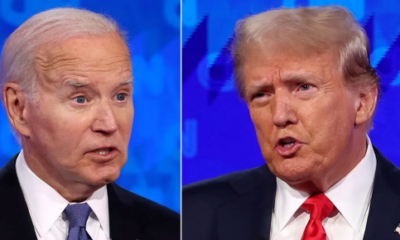
 Politics1 week ago
Politics1 week agoUS Shooting Sparks Controversy Over Afghan Vetting as Trump Blames Biden
-

 Analysis1 week ago
Analysis1 week agoAs G20 Moves On Without America, by Alabidun Shuaib AbdulRahman
-
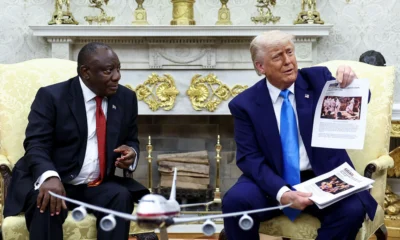
 News1 week ago
News1 week agoUS–South Africa Rift Deepens Over G20 Boycott and Diplomatic Snubs
-

 News1 week ago
News1 week agoIsraeli PM Netanyahu Seeks Presidential Pardon Amid Ongoing Corruption Trials


